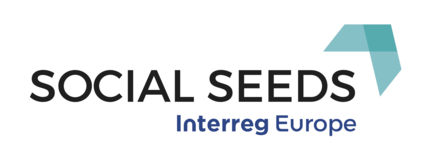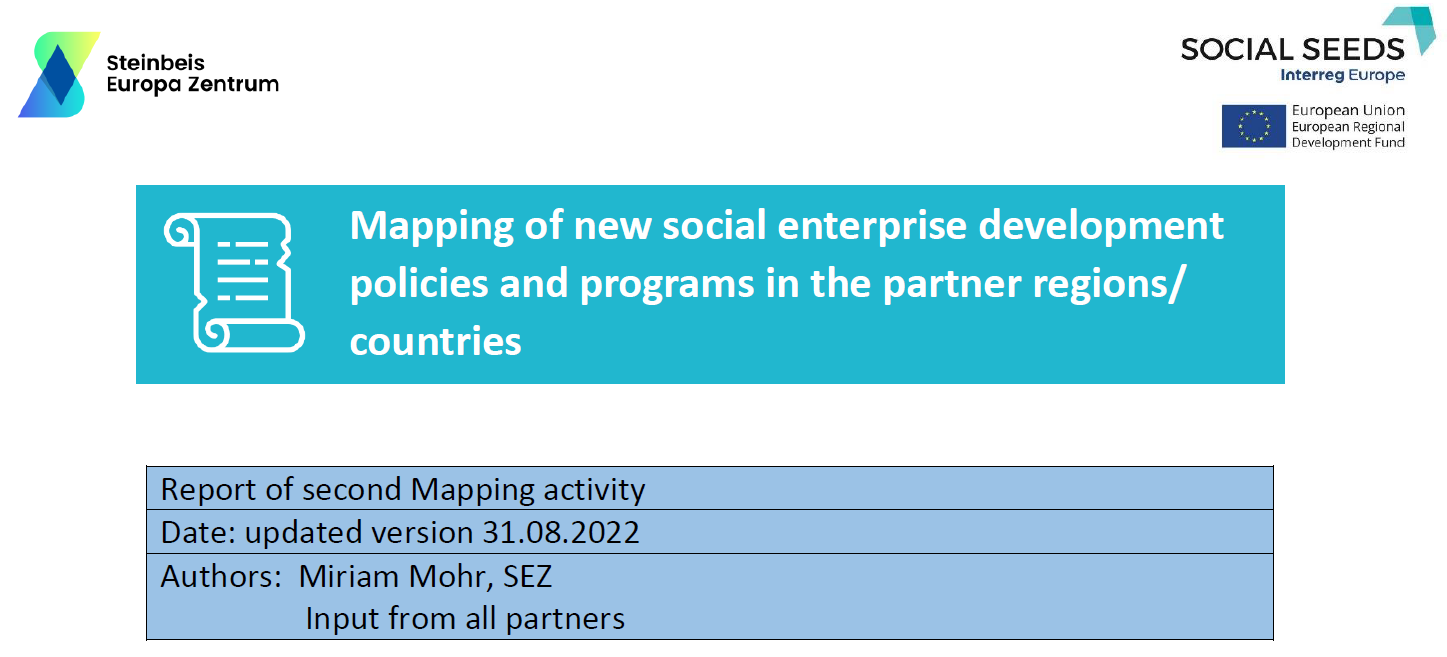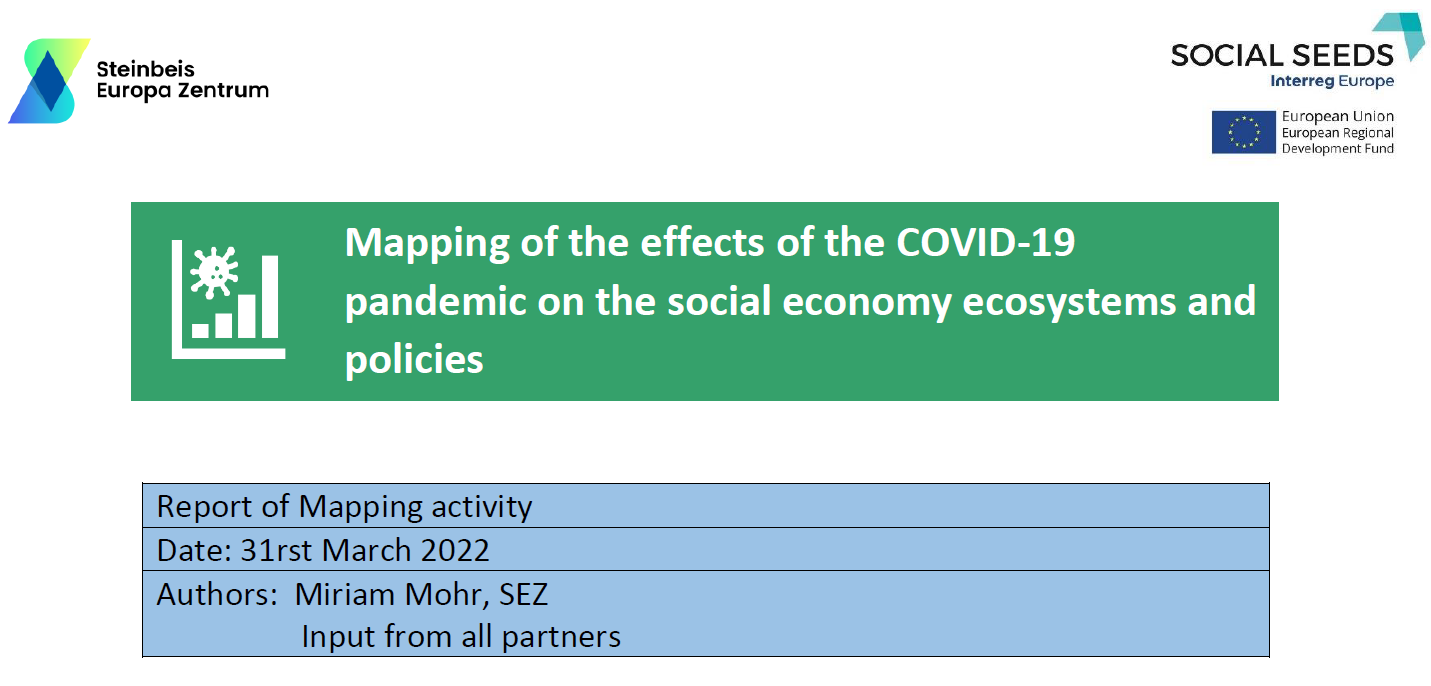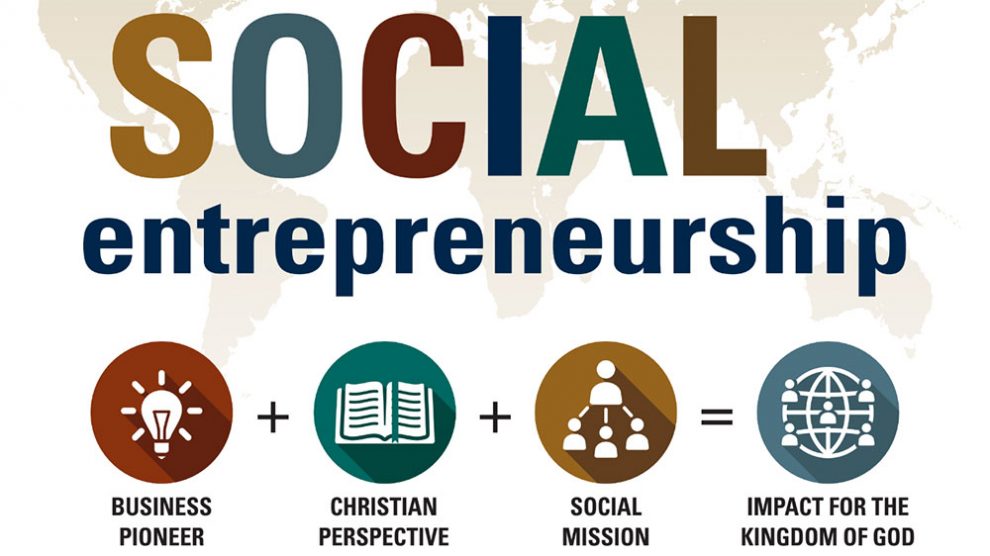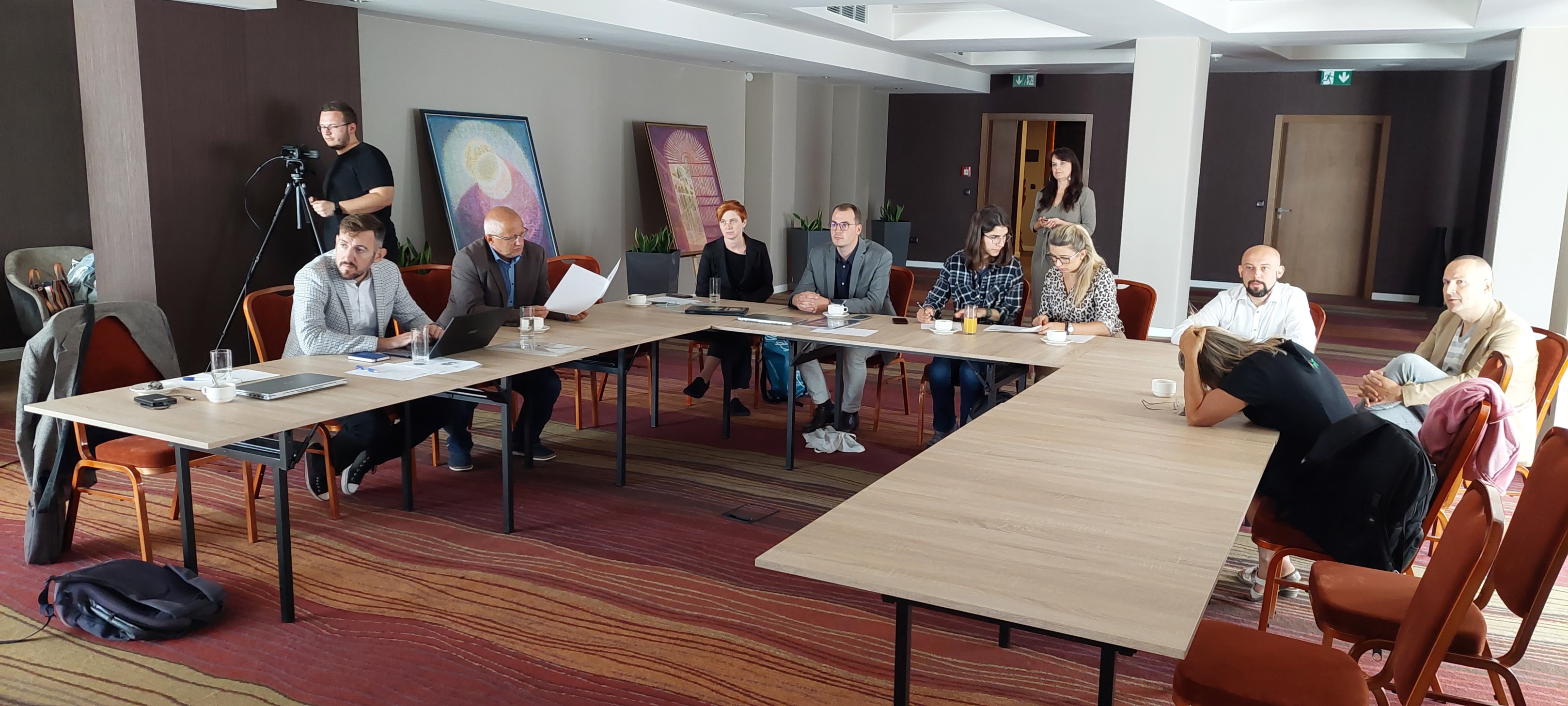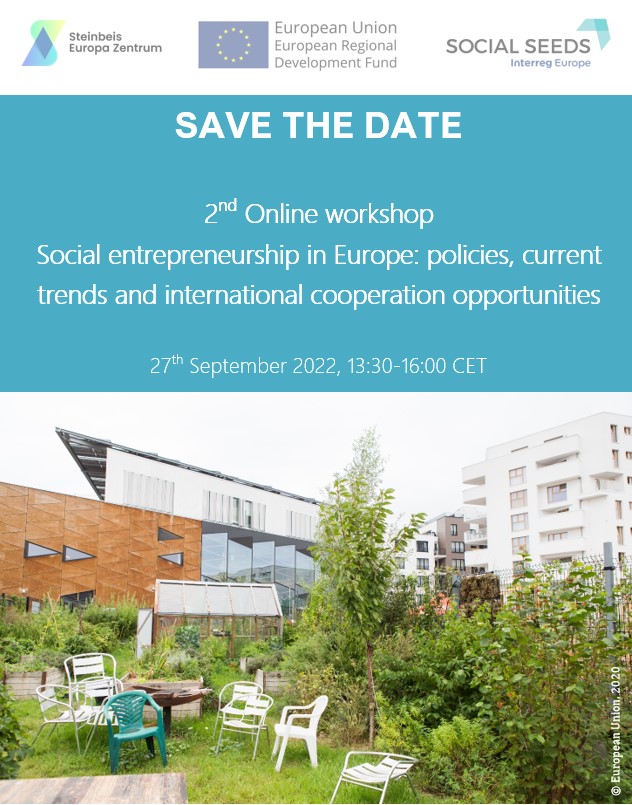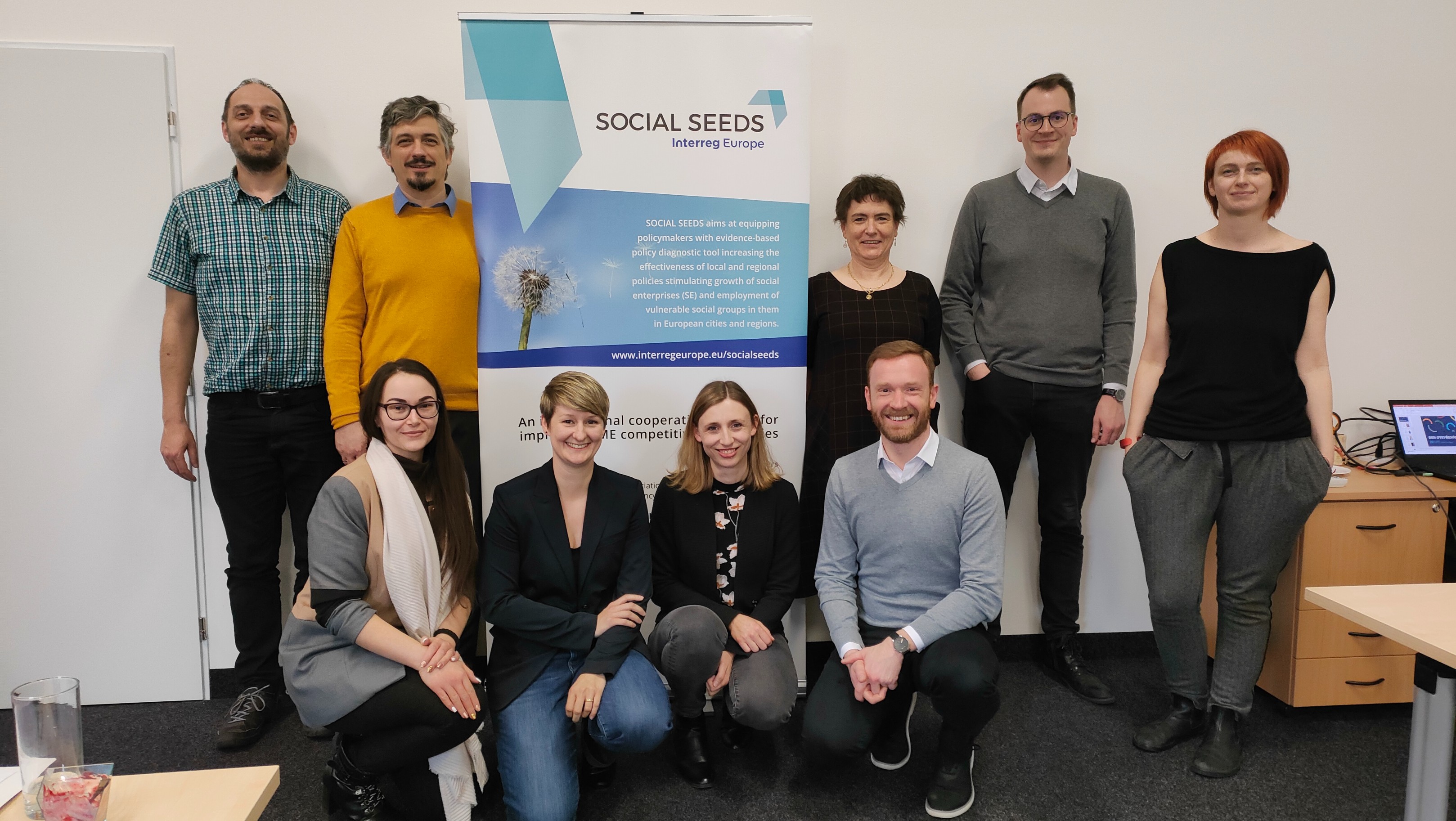Results of mapping activities in the extension period of Social SEEDS – Part I
The partner organizations implemented thorough mapping activities in the framework of the project extension. The first round of mapping activities aimed at discovering the effects of the coronavirus pandemic on SE ecosystems and crisis mitigation policies in the partner countries and regions. The results of and the lessons learnt from the mapping activities have been shared with policymakers and other relevant stakeholders in the frameworks of policy learning dialogues, local policy focus group meetings and transnational workshops.
According to the findings of the first mapping exercise, the COVID-19 pandemic impacted the economies of the partner countries negatively in general, with a decrease in national GDPs and an increase of unemployment rates. The sectors most affected by the crisis were tourism, hospitality, culture and sports, automotive and other industries that have been affected either by a shortage of supply or by a decrease of demand.
The negative effects of the COVID-19 pandemic hit the social economy sector in all countries particularly hard since social economy organisations are on average smaller and have fewer resources than traditional SMEs. Many social economy organisations have a non-profit status and thus cannot accumulate savings which made them more vulnerable. Moreover, social economy organisations are particularly active in the sectors most affected by the pandemic like hospitality, catering, education, healthcare, social services, handicraft and manufacturing. Due to the social mission of social enterprises and the fact that many of them employ vulnerable groups, we saw a specific motivation of avoiding letting off employees during the pandemic.
In terms of legal and regulatory frameworks of social entrepreneurship, the pandemic seemed to induce little to no changes in the analysed countries. However, an increasing awareness on societal challenges and the solutions provided by social enterprises, as well as an increase in social engagement by citizens had been detected. Access to finance as well as access to market generally slowed down during the pandemic, but there were differences between the analysed countries concerning the support of social economy organisations through public procurement. While public measures to support the social economy sector through public procurement were undertaken in Poland and the Czech Republic, there was a decrease in public contracts for social enterprises in Slovenia and Germany. Business support structures were mainly maintained during the pandemic but experienced difficulties due to containment measures and other restrictions.
In all analysed countries, social enterprises had a more pessimistic outlook in the beginning of the pandemic than in 2021. This can probably be explained by the fact that many social enterprises managed to adapt to the new realities of the pandemic. Generally, the COVID-19 pandemic has revealed existing “gaps” in business skills and digitization of social enterprises. Many social enterprises were hardly digitized before the pandemic and were focused on one specific field of activity, so the pandemic made the need to digitize and diversify their products and services more apparent.
Overall, each country introduced public crisis mitigation measures in the beginning of the pandemic to support the economy and to reduce the impact on companies and society in general. The crisis mitigation programmes varied between countries, but most countries included forms of short time work schemes, salary compensation, rent compensation, deferral of tax payment, and specific grants or loans in some countries. Programmes for specific sectors being hit especially hard by the pandemic, for example for the cultural or hospitality sector also have been initiated. In most of the analysed countries, social enterprises were treated as SMEs and could in theory benefit from many of the crisis mitigation measures proposed to SMEs. However, a significant distinction was observed between the theoretical access to these mitigation measures and social enterprises actually benefitting from them. Practical hurdles for social enterprises to access the crisis mitigation measures included bureaucratic barriers, a calculation of benefits depending on profits or eligibility rules based on legal status.
